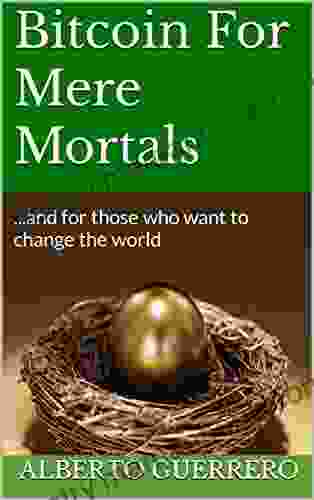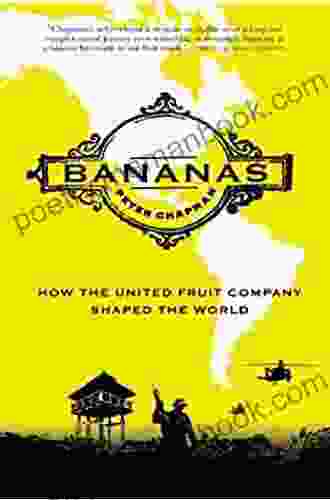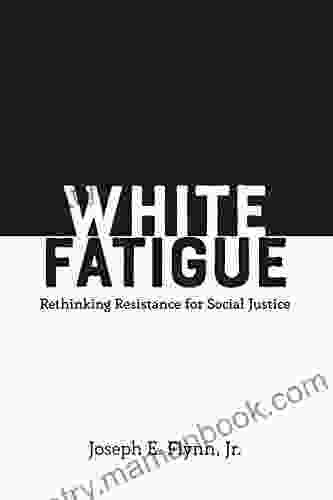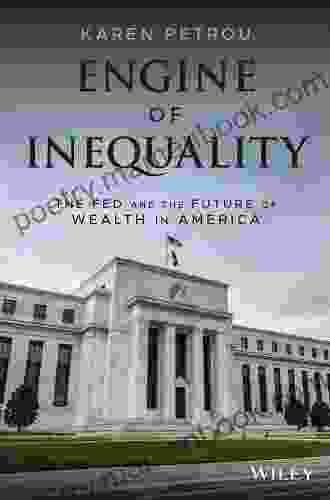How The United Fruit Company Shaped The World: A Story of Colonialism, Exploitation, and Resistance

The United Fruit Company (UFC) was an American agricultural conglomerate that played a major role in the history of Central America and the Caribbean. Founded in 1899, the UFC grew to become one of the largest and most powerful companies in the world, controlling vast tracts of land and dominating the global banana trade.
The UFC's operations had a profound impact on the economies and societies of the countries in which it operated. The company's plantations were often the largest employers in these countries, and its control of the banana trade gave it significant political and economic power.
4.2 out of 5
| Language | : | English |
| File size | : | 777 KB |
| Text-to-Speech | : | Enabled |
| Screen Reader | : | Supported |
| Enhanced typesetting | : | Enabled |
| Word Wise | : | Enabled |
| Print length | : | 252 pages |
| Lending | : | Enabled |
The UFC's history is marked by controversy. The company has been accused of exploiting workers, suppressing labor unions, and supporting repressive regimes. It has also been linked to environmental damage and the destruction of indigenous cultures.
Despite its checkered history, the UFC played a major role in shaping the world. The company's operations helped to create the global banana industry, and its products became a staple in the diets of people around the world. The UFC's legacy is complex and contested, but it is clear that the company had a profound impact on the world.
The Early Years
The UFC was founded in 1899 by Minor C. Keith, an American railroad engineer who had worked in Central America. Keith's original goal was to build a railroad in Costa Rica, but he soon realized that the banana trade was more profitable.
In 1901, Keith formed the United Fruit Company with several other American investors. The new company quickly grew to become the dominant player in the global banana trade. By the 1920s, the UFC controlled over 80% of the world's banana exports.
The UFC's operations were concentrated in Central America and the Caribbean. The company owned vast plantations in these countries, and it also controlled the transportation and distribution of bananas. The UFC's plantations were often the largest employers in these countries, and its control of the banana trade gave it significant political and economic power.
The UFC's early years were marked by rapid growth and expansion. The company's profits were reinvested in new plantations and infrastructure, and the company's influence grew steadily.
The Banana Republics
The UFC's operations in Central America and the Caribbean had a profound impact on the political and economic development of these countries. The company's plantations were often the largest employers in these countries, and its control of the banana trade gave it significant political and economic power.
In many cases, the UFC's power and influence led to the creation of what became known as "banana republics." These were countries where the UFC had a dominant economic and political influence, and where the government was often subservient to the company's interests.
The banana republics were often characterized by corruption, inequality, and political instability. The UFC's control of the banana trade gave it the power to dictate prices and working conditions, and it often used this power to exploit workers and suppress labor unions.
The banana republics were a major source of instability in Central America and the Caribbean. The UFC's operations were often seen as a symbol of American imperialism, and they contributed to the rise of revolutionary movements in the region.
The Labor Movement
The UFC's operations were met with resistance from workers throughout Central America and the Caribbean. The company's plantations were often characterized by low wages, long hours, and poor working conditions. Workers often suffered from malnutrition and disease, and they were often subjected to violence and intimidation.
In the 1930s, a wave of labor unrest swept through the banana republics. Workers went on strike, demanding better wages and working conditions. The UFC responded by cracking down on the labor movement, using violence and intimidation to suppress dissent.
Despite the UFC's efforts, the labor movement continued to grow. In the 1940s, several unions were formed in Central America and the Caribbean, and these unions began to challenge the UFC's dominance.
The labor movement eventually succeeded in improving wages and working conditions for UFC workers. However, the company continued to be criticized for its labor practices, and the labor movement remained a major challenge to the UFC's power.
The Environmental Impact
The UFC's operations had a significant environmental impact. The company's plantations were often located in environmentally sensitive areas, and the company's use of pesticides and fertilizers damaged the environment.
In the 1970s, the UFC was accused of causing widespread environmental damage in Costa Rica. The company was accused of clearing forests, polluting rivers, and destroying wildlife habitats.
The UFC denied these accusations, but the company's environmental record was a major concern for environmental activists. In the 1980s, the UFC agreed to adopt more environmentally friendly practices, but the company's environmental record continued to be criticized.
The Legacy of the United Fruit Company
The United Fruit Company had a profound impact on the world. The company's operations helped to create the global banana industry, and its products became a staple in the diets of people around the world. The UFC's legacy is complex and contested, but it is clear that the company had a profound impact on the world.
The UFC's operations were marked by controversy. The company has been accused of exploiting workers, suppressing labor unions, and supporting repressive regimes. It has also been linked to environmental damage and the destruction of indigenous cultures.
Despite its checkered history, the UFC played a major role in shaping the world. The company's operations helped to create the global banana industry, and its products became a staple in the diets of people around the world. The UFC's legacy is complex and contested, but it is clear that the company had a profound impact on the world.
Additional Information
* [The United Fruit Company: A History of Exploitation and Resistance](https://www.amazon.com/United-Fruit-Company-History-Exploitation/dp/080705041X) by Stephen Schlesinger * [Banana Wars: The United Fruit Company and the CIA in Central America](https://www.amazon.com/Banana-Wars-United-Company-America/dp/0316740323) by Gregory Grandin * [The Banana Republic: A Historical Novel](https://www.amazon.com/Banana-Republic-Historical-Novel/dp/0385492138) by Robert Stone
4.2 out of 5
| Language | : | English |
| File size | : | 777 KB |
| Text-to-Speech | : | Enabled |
| Screen Reader | : | Supported |
| Enhanced typesetting | : | Enabled |
| Word Wise | : | Enabled |
| Print length | : | 252 pages |
| Lending | : | Enabled |
Do you want to contribute by writing guest posts on this blog?
Please contact us and send us a resume of previous articles that you have written.
 Top Book
Top Book Novel
Novel Fiction
Fiction Nonfiction
Nonfiction Literature
Literature Paperback
Paperback Hardcover
Hardcover E-book
E-book Audiobook
Audiobook Bestseller
Bestseller Classic
Classic Mystery
Mystery Thriller
Thriller Romance
Romance Fantasy
Fantasy Science Fiction
Science Fiction Biography
Biography Memoir
Memoir Autobiography
Autobiography Poetry
Poetry Drama
Drama Historical Fiction
Historical Fiction Self-help
Self-help Young Adult
Young Adult Childrens Books
Childrens Books Graphic Novel
Graphic Novel Anthology
Anthology Series
Series Encyclopedia
Encyclopedia Reference
Reference Guidebook
Guidebook Textbook
Textbook Workbook
Workbook Journal
Journal Diary
Diary Manuscript
Manuscript Folio
Folio Pulp Fiction
Pulp Fiction Short Stories
Short Stories Fairy Tales
Fairy Tales Fables
Fables Mythology
Mythology Philosophy
Philosophy Religion
Religion Spirituality
Spirituality Essays
Essays Critique
Critique Commentary
Commentary Glossary
Glossary Bibliography
Bibliography Index
Index Table of Contents
Table of Contents Preface
Preface Introduction
Introduction Foreword
Foreword Afterword
Afterword Appendices
Appendices Annotations
Annotations Footnotes
Footnotes Epilogue
Epilogue Prologue
Prologue Elizabeth Beacon
Elizabeth Beacon Steffen Wittenbecher
Steffen Wittenbecher Shannon Merenstein
Shannon Merenstein Cinderella Celeste
Cinderella Celeste Paul Trammell
Paul Trammell Karen Joy Fowler
Karen Joy Fowler Pamela Brookes
Pamela Brookes Juan Francisco Manzano
Juan Francisco Manzano Larry Lerner
Larry Lerner James Rosone
James Rosone Kindle Edition
Kindle Edition Andrew E Kaufman
Andrew E Kaufman Thema Azize Serwa
Thema Azize Serwa Mariama Williams
Mariama Williams Lauren Gail
Lauren Gail Michelle Anderson
Michelle Anderson Ken Hyland
Ken Hyland Grzegorz W Kolodko
Grzegorz W Kolodko Gilda Sask
Gilda Sask Ryan Mitchell
Ryan Mitchell
Light bulbAdvertise smarter! Our strategic ad space ensures maximum exposure. Reserve your spot today!

 Raymond ParkerRush to the Lake: A Thrilling Adventure for Families and Nature Enthusiasts
Raymond ParkerRush to the Lake: A Thrilling Adventure for Families and Nature Enthusiasts Orson Scott CardFollow ·5.2k
Orson Scott CardFollow ·5.2k Marc FosterFollow ·5.2k
Marc FosterFollow ·5.2k Keith CoxFollow ·15.2k
Keith CoxFollow ·15.2k Jonathan FranzenFollow ·6.8k
Jonathan FranzenFollow ·6.8k Donovan CarterFollow ·12.4k
Donovan CarterFollow ·12.4k Pete BlairFollow ·19.1k
Pete BlairFollow ·19.1k Nathan ReedFollow ·2.1k
Nathan ReedFollow ·2.1k Clark BellFollow ·6k
Clark BellFollow ·6k

 Patrick Hayes
Patrick HayesDeath on Stage: Euphemia Martins Mystery 16
Synopsis In the...

 Benji Powell
Benji Powell1001 Best Baking Recipes Of All Time
Baking is a fun and...

 Terry Bell
Terry BellDestined War of the Covens: A Supernatural Saga of Power,...
Welcome to the...

 Mark Twain
Mark TwainBitcoin For Mere Mortals: A Comprehensive Guide for...
Bitcoin is a...

 Dennis Hayes
Dennis HayesThe Best Budget Gaming PC 2024: Build the Ultimate Gaming...
Are you looking to build the best budget...
4.2 out of 5
| Language | : | English |
| File size | : | 777 KB |
| Text-to-Speech | : | Enabled |
| Screen Reader | : | Supported |
| Enhanced typesetting | : | Enabled |
| Word Wise | : | Enabled |
| Print length | : | 252 pages |
| Lending | : | Enabled |










